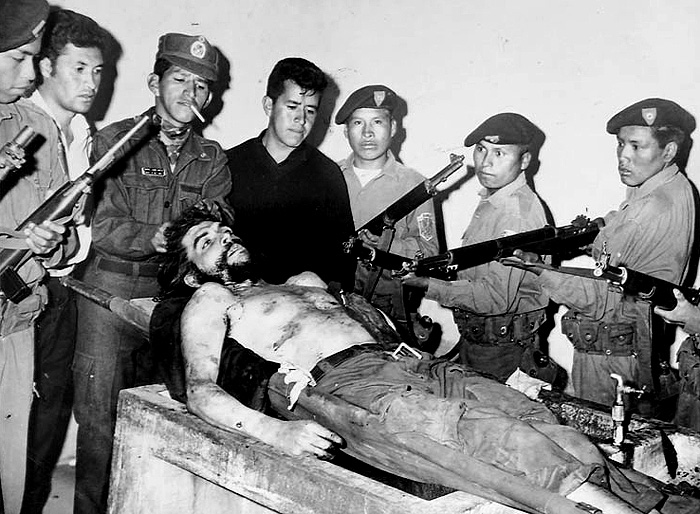9 October 2020 — National Security Archive
Argentine-born Revolutionary Executed 53 Years Ago

Declassified Records Describe Intense U.S. Tracking of Guevara’s Movements, Initial Doubts about His Death, and Hopes that His Violent Demise Would Discourage Revolutionaries in Latin America
Washington, DC, October 9, 2020 – Fifty-three years ago, at 1:15 p.m. on October 9, 1967, Argentine-born revolutionary Ernesto “Che” Guevara was executed in the hills of Bolivia after being captured by a U.S.-trained Bolivian military battalion. A CIA operative, Felix Rodriguez, was present. U.S. officials had been tracking Guevara’s whereabouts ever since he disappeared from public view in Cuba in 1965. The highest White House officials were intensely interested in confirming his death, then using it to undermine leftist revolutionary movements in Latin America, as a selection of White House and CIA documents posted today by the National Security Archive describes.
President Lyndon Johnson himself received regular updates on Guevara’s whereabouts, the record shows, reflecting continuing, deep concerns over Cuban-inspired revolutionary activity in the region. Today’s posting features National Security Council memos, CIA field reports, and other documents that follow several strands of the story, from Guevara’s ill-fated campaign in Bolivia, to La Paz’s request for U.S. help in creating a “hunter-killer” team to “ferret out guerrillas,” to reports of Che’s last conversation and execution (provided by an undercover CIA officer at the scene), to the intensive efforts of the United States to mount a posthumous propaganda campaign based on Guevara’s diary and other captured records. In a number of cases the documents have previously been released but are now available with fewer security redactions.
The materials are selections from the recently digitized documentary compilation, “CIA Covert Operations III: From Kennedy to Nixon, 1961-1974,” part of the Digital National Security Archive series published by ProQuest. It is the third in an ongoing series edited by John Prados and focuses on CIA decision making and operations in the Caribbean, South America, Africa, Iraq, Indonesia, and elsewhere. The records relating to Cuba build on the previous work of the National Security Archive’s Cuba Project, directed by Peter Kornbluh, which has produced many groundbreaking publications on Guevara, Fidel Castro, and U.S.-Cuba relations.
THE NATIONAL SECURITY ARCHIVE is an independent non-governmental research institute and library located at The George Washington University in Washington, D.C. The Archive collects and publishes declassified documents acquired through the Freedom of Information Act (FOIA). A tax-exempt public charity, the Archive receives no U.S. government funding; its budget is supported by publication royalties and donations from foundations and individuals.
LikeLike
I made an article about lessons taken from Che Guevara (and his decisions). I tip my hat to yours due to its updates from what I read about him.
LikeLike